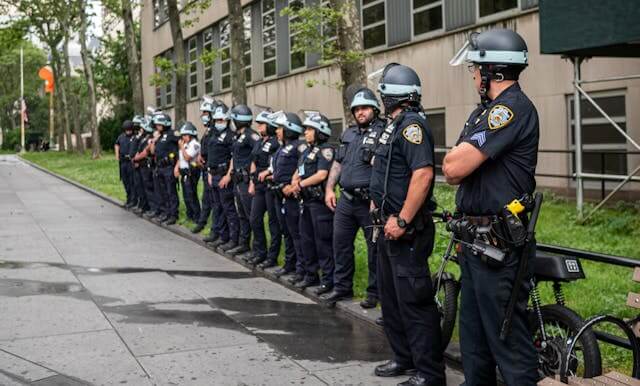If there’s one thing we can all agree on, it’s that there’s not nearly enough law enforcement out there in times of need, and if you’re considering starting a career in law enforcement, you might be wondering what kind of role you could take. This, of course, will entirely depend on what kind of role you can handle. For example, a police officer on the front line will see lots of devastation, and risk their lives everyday to help keep people safe. On the other hand, there are plenty of other roles to consider such as administration, phone lines, or even private investigation. Today we’re going to look at how you can kickstart a career in law enforcement to help keep people safe and fight the battle against crime all over the world.
Moving up the ranks depends on experience, performance evaluations, passing a written promotion test, and acquiring new skills and training, depending on the department. A promotion raises pay, but it also increases the degree of accountability and possible bureaucracy. So, whether you’re looking at becoming a correctional officer or you’d rather stay behind the scenes, you can still expect to undergo extensive training to ensure you’re able to perform your role to the best standard.
Many roles, even those not on the front lines, require familiarity with modern tools and technologies. For example, understanding Live Scan Hardware is crucial for those in administrative roles, as it is essential for processing fingerprints and conducting background checks efficiently. When a prospective police officer decides to pursue higher schooling, a variety of opportunities opens up. Here are some of the places where you may be able to get your certificate or degree.
Vocation/trade school
Many vocational or trade schools offer credential programs that can be used to earn college credit for an associate or bachelor’s degree in the future. Some schools may offer associate’s degrees. Vocational or trade schools will help you save money on college expenses while still getting the education you need.
Law enforcement school
Law enforcement colleges, as their name suggests, are solely dedicated to the training of law enforcement officers. A law enforcement school or police academy may train recruits for a particular city or state, depending on the geographic region. Laws, how to make arrests, physical fitness, tactics, and first aid will all be included in the program.
Military
Law enforcement officials and police forces place high value on military experience. Hiring a recruit with military training offers numerous advantages, including expertise with weapons, proficiency in nighttime surveillance using night vision equipment, mental endurance, physical fitness, discipline, and a strong understanding of command structure and culture.
Community college
Students interested in becoming police officers have a variety of opportunities at community colleges. Students may earn an associate degree or a credential in two years or a few months. As an added benefit, several community colleges allow certificate program credits to be applied toward an associate degree.
Longer courses of up to 4 years
Finally, the federal government frequently has departments that include a bachelor’s degree. Even if a four-year degree isn’t needed, earning a bachelor’s degree will improve the chances of being hired and promoted. So, even if you’re starting your journey later on in life, there are a plethora of ways in which you can do this around your current commitments.
